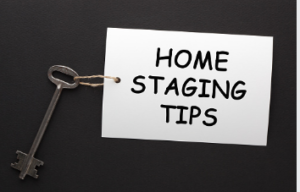If you’re buying or selling a property, you’ll want to use a home conveyancer. They know all the laws and can make the process run smoothly. They also know how to obtain the searches required by the local authority. These searches are a vital part of the home conveyancing process. A professional and licensed conveyancing solicitor should complete them.
 Licensed conveyancing solicitor
Licensed conveyancing solicitor
When you are planning to buy or sell a house, you will need the services of a licensed conveyancer. They will handle all the legal paperwork for you and help you understand the law concerning the move. In addition, they will help you make sure that the sale process runs as smoothly as possible. There are many different types of conveyancing solicitors available in the market, so it’s important to know which one is right for your needs.
HomeConveyancerAdelaide licensed conveyancers are qualified property lawyers that specialise in home conveyancing. They are also Commissioners of Oaths, meaning they can administer oaths and witness official documents. They will also ensure that all contracts, documentation, and financial arrangements are in order. They can help you with everything from obtaining a mortgage to taking out insurance.
Local authority searches
Home conveyancers should be aware of the importance of Local authority searches. Most high street lenders now accept such searches, so it is important to get a local authority search when making an offer on the house. The cost and speed of a local authority search should be carefully considered, as delays can affect the speed of your chain transaction.
A local authority search gives your conveyancer detailed information about the property’s surrounding area, which can prevent future unpleasant surprises. A typical local authority search will include a search of the Local Land Charges Register and a questionnaire on the local area.
Fees
Fees for HomeConveyancerAdelaide home conveyancer depend on several factors, including the type of property and its price. If you’re purchasing a leasehold property, for instance, there is additional work that the conveyancer will need to do liaising with the lender and other third parties. Therefore, the conveyancer may also charge a separate leasehold supplement fee.
The conveyancer must also communicate with the landlord. This landlord may be an individual freeholder or a company representing a group of leaseholders. It can cause the conveyancing process to take longer.
Another fee for a home conveyancer is obtaining proof of identity. Generally, you must provide proof of identity before the conveyancer can proceed with the transaction. However, the conveyancer may sometimes use third-party services to confirm your identity, such as Equifax online ID checks. Similarly, the buyer will pay the government’s Telegraphic Transfer fees and Land and Building Transactions Tax.
Completion statement
The completion statement for home conveyancer is a legal document. It details all the fees, disbursements, and deposits the seller and buyer pay. It also shows any money received from the mortgage company, the registration fee, and the stamp duty land tax. All funds must be paid into the solicitor’s bank account by the day before completion.
Completion is the final stage of buying a property. After exchanging contracts, the buyer and seller must complete the transaction. The conveyancer will send two copies of the statement to the buyer and the seller, and the buyer should check these calculations to ensure that the information is accurate.
Complaints
If you’ve ever had to deal with a home conveyancer who didn’t live up to expectations, what steps to take to resolve your issue? You can start by talking to your conveyancer and clearly stating the complaint. After this, you can write them a letter or email to request a response. If the conveyancer responds within eight weeks, you can file a complaint with the Legal Ombudsman.
If you still need more than the service you received, you can contact the Legal Ombudsman, an independent body investigating complaints about licensed conveyancers.
Afbefp says:
cenforce online language – levitra professional pills tent brand viagra dash
May 7, 2024 — 11:26 pm